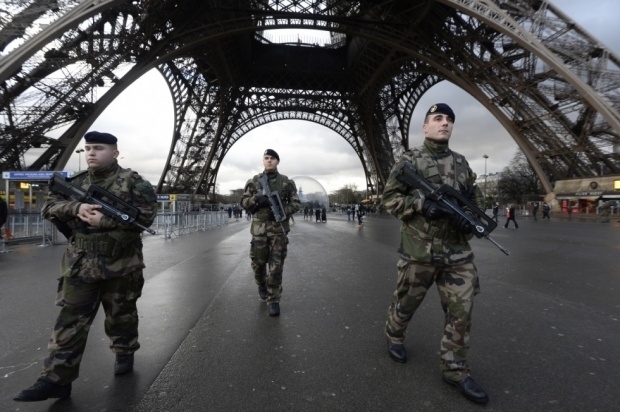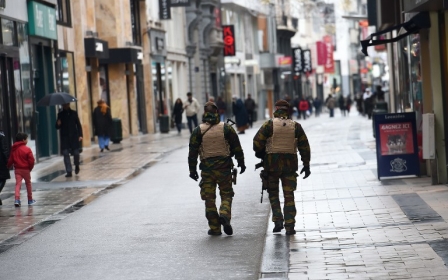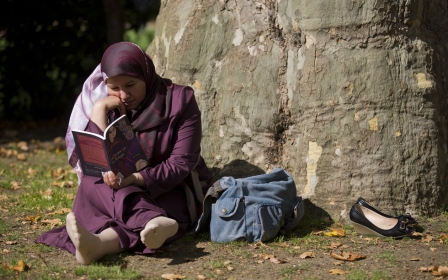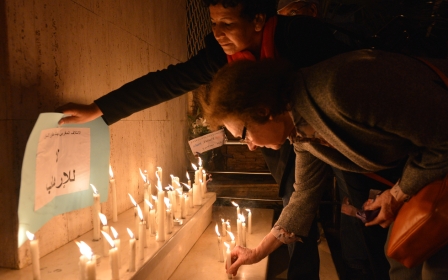The risky war of French president 'Homeland'

The Paris attacks in 13 November 2015 triggered a strong response from the French government; an indication of how serious the situation is: the head of state himself handled the "crisis communication".
Nevertheless, beyond the use of a much-needed threatening rhetoric to express his indignation towards the attacks, some details of what appropriate steps should be taken by President Francois Hollande, who appeared to be walking in the footsteps of George W Bush, were enough to trigger some questioning.
Backed by most of the population that tilted in his favour and a parliamentary majority, the French leader wants to introduce a "Patriot Act" à la française which could be worse than the original American version. But how effective would it be?
President Hollande’s Versailles
In the aftermath of the Paris attacks, the wish expressed by Hollande to see tightening security measures adopted on a national level has a very reasonable chance of success. Presidential demands expressed at a joint session of parliament in Versailles on Monday, 16 November, clearly reflect the position of a country at war.
Besides the declaration of a state of emergency, now extended for a period of three months, extremely rigid measures have been imposed: security forces can impose a curfew and enforce it with heavy sanctions, conduct searches at all times, etc. We now know that the French president plans to promote a "new order" which would add to the draconian measures being implemented under the July 2015 Intelligence Act.
Such a policy is clearly reflected by the determination to carry out a constitutional reform that would increase the authorities’ powers, and ultimately bring in a law authorising withdrawal of French citizenship from binationals, the creation of 8,500 new security and justice related jobs, and added to this the intensification - already initiated – of the French air strikes against the Islamic State in Syria.
In parallel, the president has called on European Union member states to show solidarity with France by invoking Article 42(7) of the EU Treaty. This reflects a move to engage Europeans in a security policy shift in which France would supposedly lead the way. As for the additional costs that these measures would involve, France’s officials do not see any reason why we should be concerned, since "the security pact outweighs the [EU] stability pact," according to the French president.
The limits of an excessive security strategy
The increase of security measures in France is not unusual: the steps outlined in the Vigipirate plan, designed in the late 70s, have regularly defined the French citizens’ daily life for the past two decades, as observed through the numerous controls at the entrance of most public places.
Similarly, the Sentinel operation, established in the wake of the Charlie Hebdo and Hyper Cacher supermarket attacks in January 2015, have accustomed French citizens to exceptional circumstances as an everyday life norm. Only a few voices were raised then against this modus operandi and the fact that it would generate a large military presence on the streets.
The attacks of January 2015 also gave the French government a free reign to put into effect the so-called 13 November 2014 Law to boost the anti-terrorism measures through a surge in the number of arrests for charges of promoting terrorism, and secondly by ratifying a particularly forceful law on intelligence, which included, among other major consequences, measures to strengthen security and intelligence forces.
During that period there emerged what the media has recently dubbed a security turn, which has popular backing. However, rather than calling it a turn, we should better speak of a not very beneficial excess, with an effectiveness that remains to be proven.
We simply have to observe how the appalling 13 November 2015 attacks could not be prevented despite the colossal resources that the French security services and intelligence boast about, to understand that the response to terrorist threats cannot be addressed solely through security means.
France is a target for organisations like Daesh and others, and this fact is not likely to change anytime soon. The "cells implanted on national territory" require vigilance and monitoring at all times, but the active tracking by the French services and their European and international counterparts of suspicious individuals could not have prevented the 11/13 tragedy.
The issue of strengthening border controls in the Schengen area – a very symbolic measure at a time when the European Union is facing refugees flocking mainly from the Middle East – should not distract attention from the real issues. The perpetrators of the 13 November attacks, like those before them in January 2015, came from within the EU.
And even if they have stayed in training camps located outside the union, their determination to sow evil and horror seems to be more the result of radicalisation fuelled by their experiences within rather than away from European countries.
France’s announcement to reestablish control over its own borders goes in the same direction. It even appears to be malicious at a time when the European Union is struggling for its political survival.
The security policy, electoral considerations aside, can undoubtedly tighten the noose around organised gangs aspiring to repeat the 11/13 attacks. Meanwhile, the way this policy is formulated limits and stifles the supposed European spirit without undermining the ideology of violent and deadly tendencies. In this respect, we were, and still are, entitled to witness "the European spirit override the security spirit".
A wake up call that has yet to come
The times the EU is going through do not bode well. The 11/13 attacks have exposed the extent of the threat dominating the EU; but from a more global perspective, this situation reflects how our much-vaunted values of respect, openness and altruism prove to be no more than empty words.
Basically, most of the EU member countries are overwhelmed by a self-imposed isolation or even tempted to exclude “the other” as soon as these countries’ interests are threatened. Such a posture - indicative of an era of uncertainty - shows how profound we have regressed since the time when "Europe" was meant to be fraternal and open to enlargement.
Charles de Gaulle is known to have said: "While force is needed to build a state, the war effort can only be productive when serving policies." It is this delicate balance that France and its EU counterparts should retrieve. Though the "hunt for terrorists" is justified by the magnitude of the 11/13 tragedy, the "pure security considerations" won’t stop the most radical individuals and organisations they belong to from pursuing their intentions.
The declared state of war now should be considered within the context of a comprehensive and coherent policy, whether at national, European or international level, which combines intransigence and determination against terrorist acts, with self-criticism and rethinking some of our attitudes that helped create monsters.
Otherwise "the war effort" will more or less carry the risk of backfiring, sooner than we think, against ourselves – the Europeans. It is indeed by being more European, rather than being more isolationists, that our challenges must be addressed.
- Barah Mikail is Director of Research at FRIDE (www.fride.org) and associate professor at Saint Louis University in Madrid. He previously worked at the Institute of International and Strategic Relations (IRIS, 2002-2011). He is the author of several books and publications. His latest book, A necessary reading of the 'Arab Spring', is published by Cygnus Publishing in 2012.
The views expressed in this article belong to the author and do not necessarily reflect the editorial policy of Middle East Eye.
Photo: The French security forces stand guard at the Eiffel Tower following the Charlie Hebdo and Hyper Cacher supermarket attacks in January 2015 (AFP).
This article was translated from French by Ali Saad. The original can be acceded here.
Middle East Eye propose une couverture et une analyse indépendantes et incomparables du Moyen-Orient, de l’Afrique du Nord et d’autres régions du monde. Pour en savoir plus sur la reprise de ce contenu et les frais qui s’appliquent, veuillez remplir ce formulaire [en anglais]. Pour en savoir plus sur MEE, cliquez ici [en anglais].





